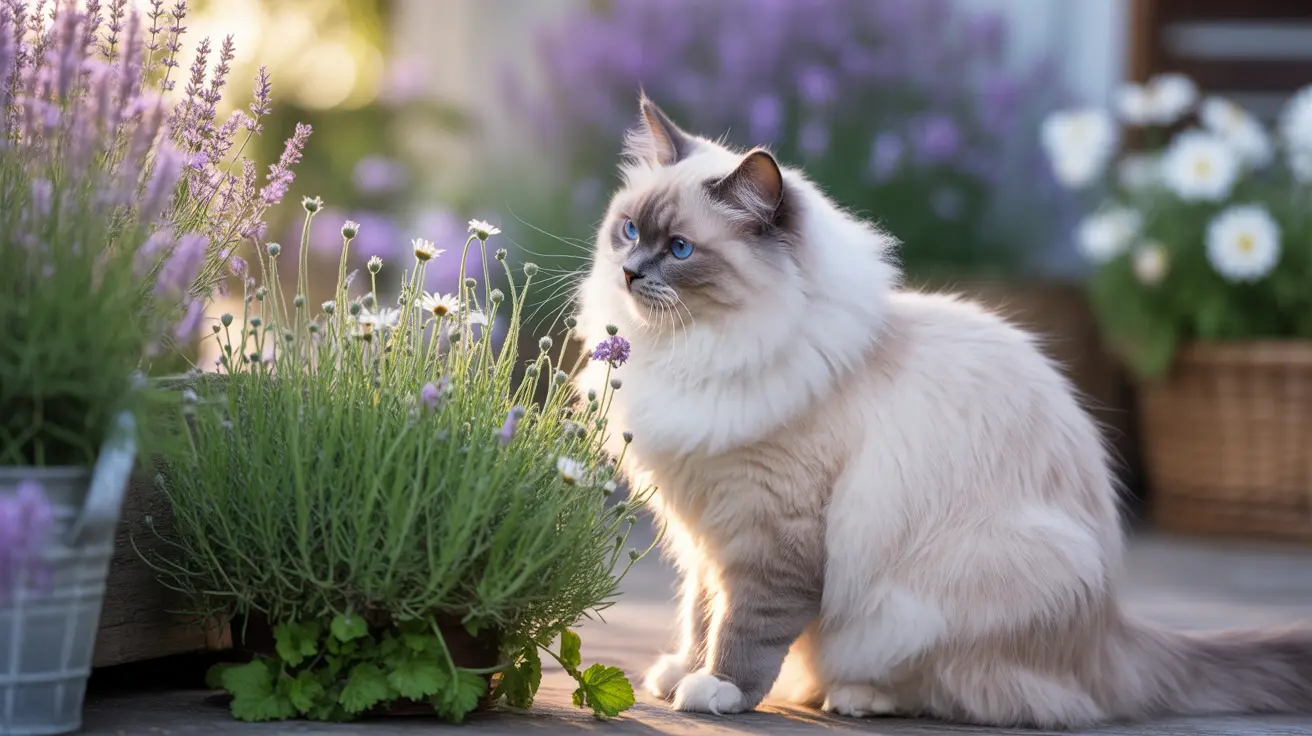As cat owners increasingly seek natural ways to support their pets' health and wellbeing, herbs have emerged as a valuable addition to feline care routines. However, navigating the world of herbs for cats requires careful consideration and knowledge to ensure safety and effectiveness. This comprehensive guide will help you understand which herbs can benefit your feline friend and how to use them properly.
From behavioral enrichment to immune support, herbs can offer numerous benefits for cats when used appropriately. Let's explore the safe options, potential benefits, and essential precautions you need to know.
Safe and Beneficial Herbs for Your Feline Friend
Several herbs have been proven safe and beneficial for cats when used correctly. Here are some of the most valuable options:
Catnip and Valerian: Nature's Mood Enhancers
Catnip, perhaps the most well-known herb for cats, contains nepetalactone, which can trigger either excitement or relaxation in cats. Interestingly, about 70% of cats respond to catnip, while the remaining 30% show no reaction due to genetic factors.
Valerian root, while known for its calming effects in humans, often acts as a stimulant for cats, promoting increased activity and playfulness. It can be an excellent alternative for cats who don't respond to catnip.
Digestive Support Herbs
Cat grass varieties, including wheatgrass, oat grass, and barley grass, can aid digestion and provide essential nutrients. These herbs are particularly helpful for indoor cats who may seek out plants to chew on naturally.
Fennel seeds and dandelion root can support healthy digestion and liver function when used appropriately under veterinary guidance.
Creating a Cat-Safe Herb Garden
Establishing a cat-friendly herb garden can provide enrichment and safe access to beneficial herbs. Consider including:
- Basil
- Rosemary
- Thyme
- Sage
- Cilantro
- Lemon Balm
Ensure all plants are grown without pesticides and keep toxic herbs completely separate from your cat's accessible areas.
Herbs to Avoid: Protecting Your Cat
Some common herbs can be dangerous or even lethal to cats. Always avoid:
- Garlic and onion (including chives)
- Oregano
- Tarragon
- Mint (especially pennyroyal)
- Marijuana
- Foxglove
Safe Usage Guidelines and Best Practices
To ensure your cat benefits safely from herbs:
- Always consult with your veterinarian before introducing any new herb
- Start with minimal amounts and observe your cat's reaction
- Use only fresh or high-quality dried herbs
- Avoid essential oils unless specifically formulated for cats
- Keep detailed records of your cat's responses to different herbs
Frequently Asked Questions
What are the safest herbs for cats that can be used in a home garden?
The safest herbs for cats include catnip, cat grass, basil, rosemary, thyme, sage, and lemon balm. These can be grown in a dedicated cat-friendly garden space, ensuring they're free from pesticides and other harmful chemicals.
How can I introduce herbs to my cat's diet safely without causing digestive issues?
Start with tiny amounts of one herb at a time, sprinkled on food or offered as a treat. Monitor your cat for 24-48 hours before introducing another herb. Always consult your veterinarian first, especially if your cat has existing health conditions.
What are the benefits of using herbs like valerian and catnip for my cat's behavior?
Catnip can promote both playfulness and relaxation, while valerian typically stimulates activity. These herbs can help reduce stress, encourage exercise, and provide mental stimulation. Effects typically last 10-15 minutes and are completely safe for most cats.
Which herbs should I avoid giving to my cat due to toxicity?
Never give your cat garlic, onion, chives, oregano, tarragon, or any form of mint (especially pennyroyal). These herbs can cause serious health issues ranging from digestive problems to organ damage.
How can I prevent adverse interactions between herbs and medications in my cat?
Always inform your veterinarian about any herbs you're using or planning to use. Keep a detailed log of medications and herbs, and never introduce new herbs without professional guidance when your cat is on medication.
Conclusion
When used properly, herbs can be a wonderful addition to your cat's wellness routine. Remember to always prioritize safety, start slowly, and work with your veterinarian to create the most beneficial herbal program for your feline friend. By following these guidelines and staying informed about safe and unsafe herbs, you can enhance your cat's quality of life naturally and effectively.






